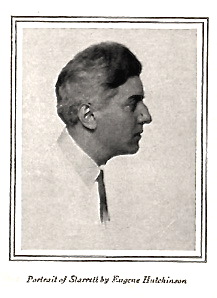Nudists, Buffoons and Hoogles. Oh my.
A few additions that have come in the mail.
It's been a busy few months here at Studies in Starrett World Headquarters, and several intriguing items have come in the mails. Here's a glimpse at a few:
Real America magazine
My favorite headline from the cover: "Huey P. Long: Buffoon of the U.S. Senate." Political junkies will recall that Long was the model for Willie Stark in All the King's Men by Robert Penn Warren.
It's more than 80 years old, but this does sound familiar: Real America magazine calls out politicians as buffoons, questions whether we're going to war with an Asian country, and offers an "informal" interview with the new President of the United States.
What you see here is the August 1933 issue of Real America, which was still in its infancy as a publication. This was only the 6th issue of the publication, which came out of Chicago and was edited, at least at the time, by one Edwin Baird.
A few words about Baird: A decade or more ago, I undertook research into the origins of Starrett's book, The Private Life of Sherlock Holmes. The title chapter was published in the December 1932 issue of a magazine called Real Detective. The two publications not only sounded alike in name (Real America/Real Detective), but were edited by the same fellow, Edwin Baird. (More about this can be found in the Spring issue of The Baker Street Journal, to which you should subscribe. Really. Like now.)
So far as I know, this was the only time Starrett had a column in Real America magazine. If you find another, let me know!
Baird and Starrett were friends, and maybe that's why a column by Starrett popped up in the August 1933 issue of the publication that called itself "The Outspoken Magazine."
Now, Starrett was many things as a writer, but he was rarely outspoken. Maybe that's why his column feels like a bit of a muddle. The title "From Hell to Breakfast," seems to have been based on a popular phrase at the time. I don't know if it's still used, but it seems to mean "we did everything we could," as in "We went from hell to breakfast looking for that kid."
In the piece, Starrett starts by grumping about the fact that the Chicago World's Fair has opened and is charging folks an admission fee while the city's teachers are owed several months in back salary. "It is an anomalous situation, to be faintly euphemistic about it," he observes.
That'll show 'em. Outspoken. Right.
(The Newberry has a nice online display about the "Century of Progress" exhibition. I am a fan of the expo, particularly its Art Deco posters and it train exhibits, featuring such rolling stock as The 20th Century Limited.)
Other highlights of Starrett's column include:
"The University of Kansas Museum has traded two moose heads to the National Museum at Washington for a camel skeleton."
"Adam Barber, candidate for mayor of Watsonville, California, (wonder why that town's name struck Starrett's fancy?) on a strict economy platform, has been doing his campaigning on roller skates …"
"Reforestation has encountered a serious problem in California … where a nudist colony has been established hard by the proposed site of a government camp."
The column also includes more than few words that will not ingratiate Starrett to modern readers, particularly those of what at the time would have been called "the fair sex." It begins: "There is a potential autocrat in most women that must find an outlet."
Perhaps the less said about this the better.
I've only seen a handful of other issues of Real America, but none have another Starrett column inside. Perhaps the nudists, roller skaters and autocratic women were not truly a part of "Real America" after all.
At any rate, it goes onto the shelf next to the growing length of pulp magazines. If any of you see another copy with a Starrett column in it, let me know.
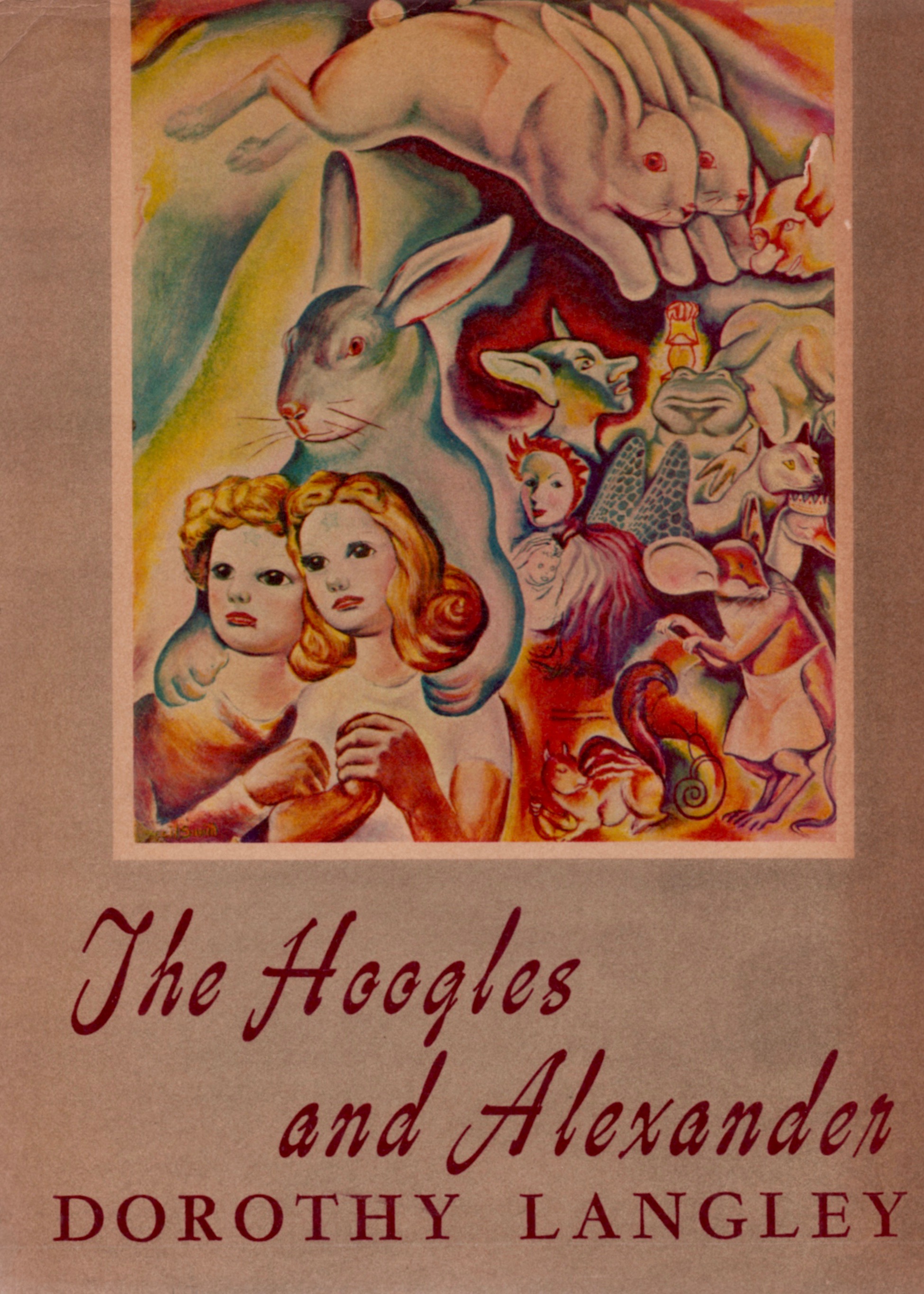
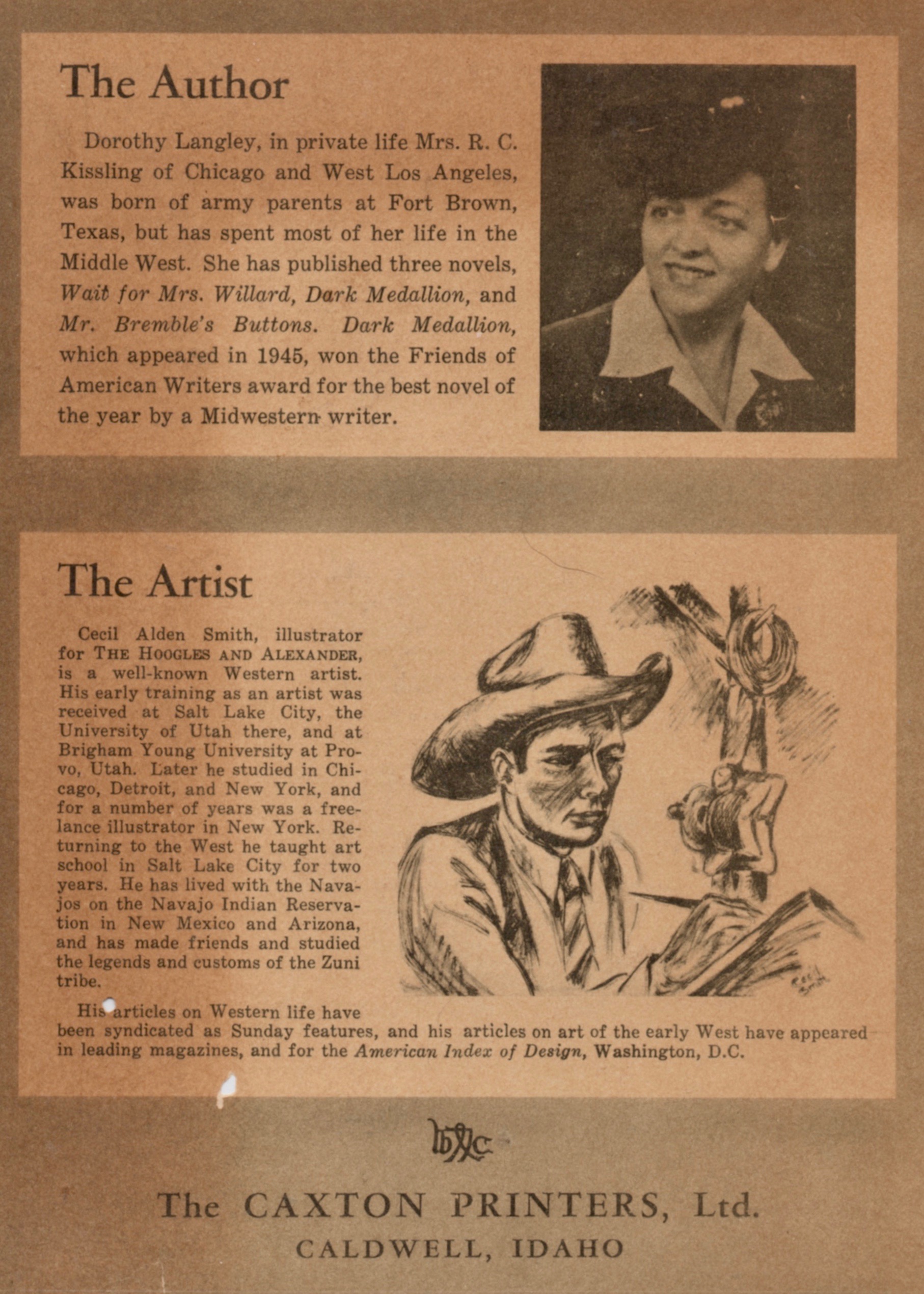
The Hoogles and Alexander
Ah, childhood. Those carefree days of endless reading pleasure, dreaming of racing along with Peter Pan, Alice in Wonderland, Frog and Toad, and of course, the Hoogles.
What's that you say? You've never heard of the Hoogles? Nonsense. EVERYONE has heard of the Hoogles. Or so Starrett predicted when the book was released upon the world from the good people at The Caxton Printers of Caldwell, Idaho in 1943.
By 1943, Starrett was firmly established as a Man Whose Voice Matters when it came to books, especially in the Midwest. So to have him write a three-page forward endorsing your book was no small matter. And to have him gush eloquently on your efforts must have been a delight for Dorothy Langley aka, Mrs. R.C. Kissling of Chicago and West Los Angeles. Here's just a bit of his praise from one of his "Books Alive" columns:
It is, I believe, a children's classic destined to live long after this season and many other Christmas seasons. I hope it will live as long as some of the good books that inspired its author to write it; for Mrs. Langley has written a work of imagination in the line of Alice in Wonderland and Wind in the Willows. It is a whole new natural history of fairyland, and I can not imagine the child, or the grown-up either, who will not take it to his heart. Some of the author's fancies are as charming, as unforgettable, as anything you will find In Peter Pan.
Why was he so taken? In part, he confesses that he always wanted to write a children's classic along the lines of those he so admired in his own youth.
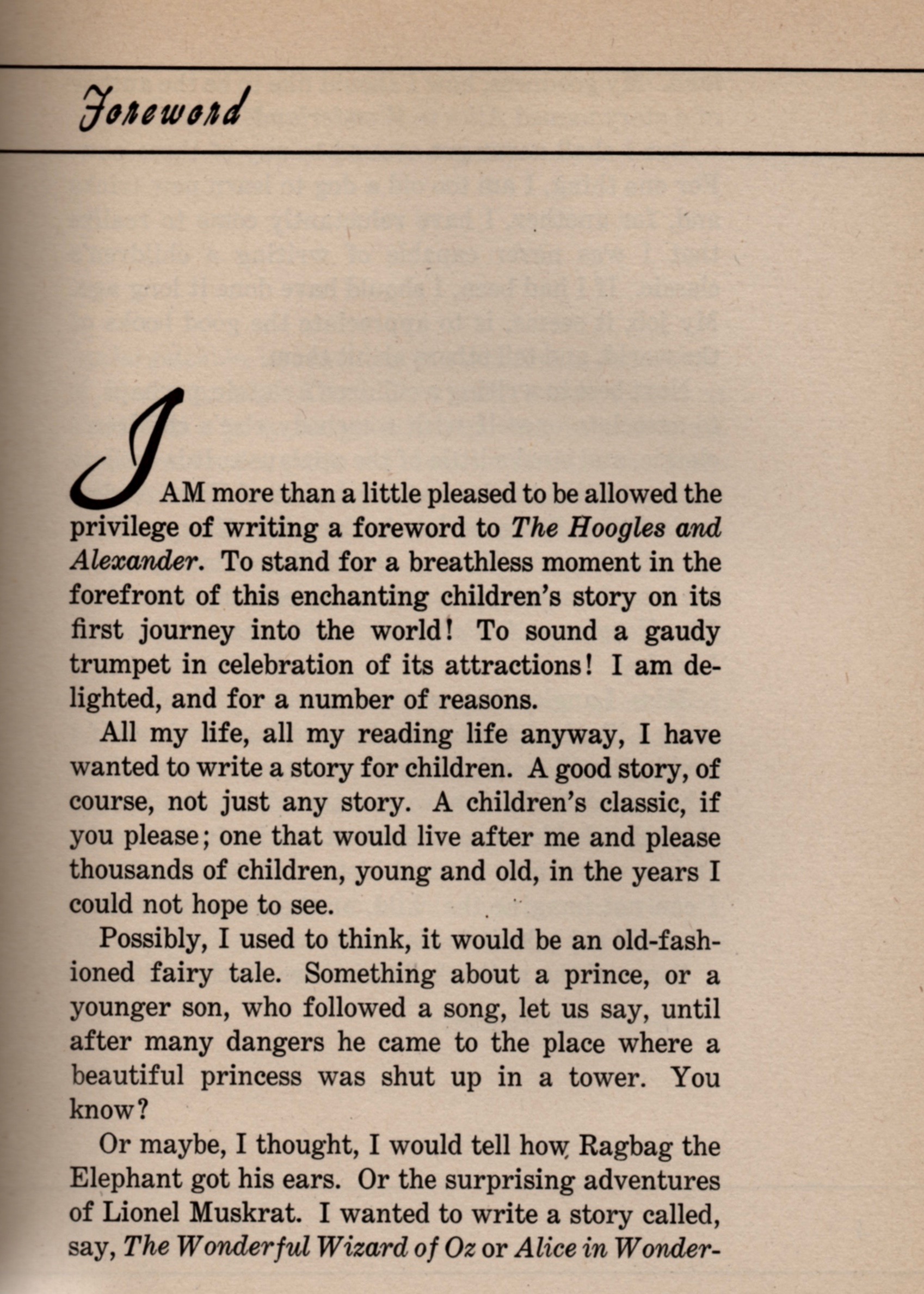
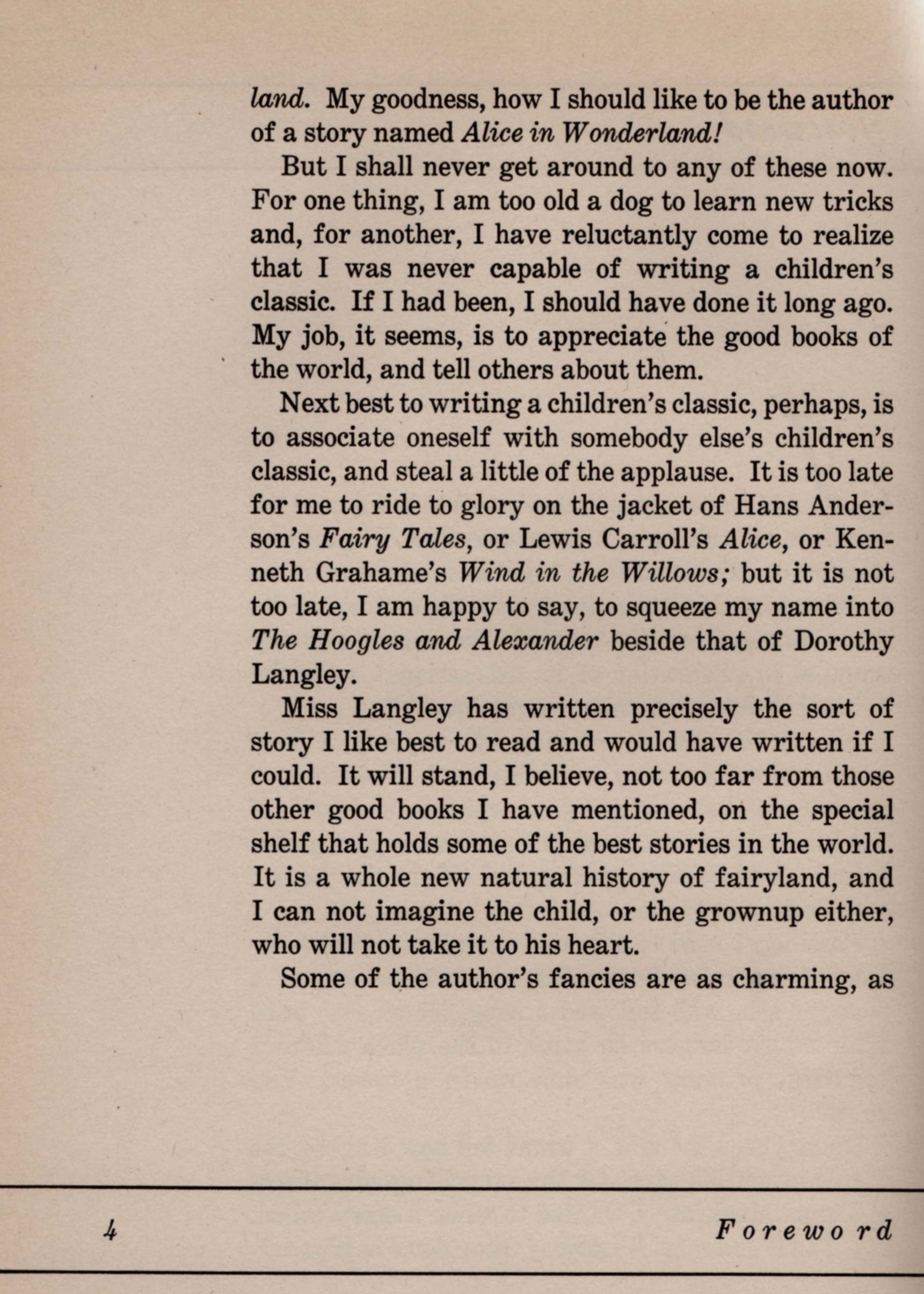
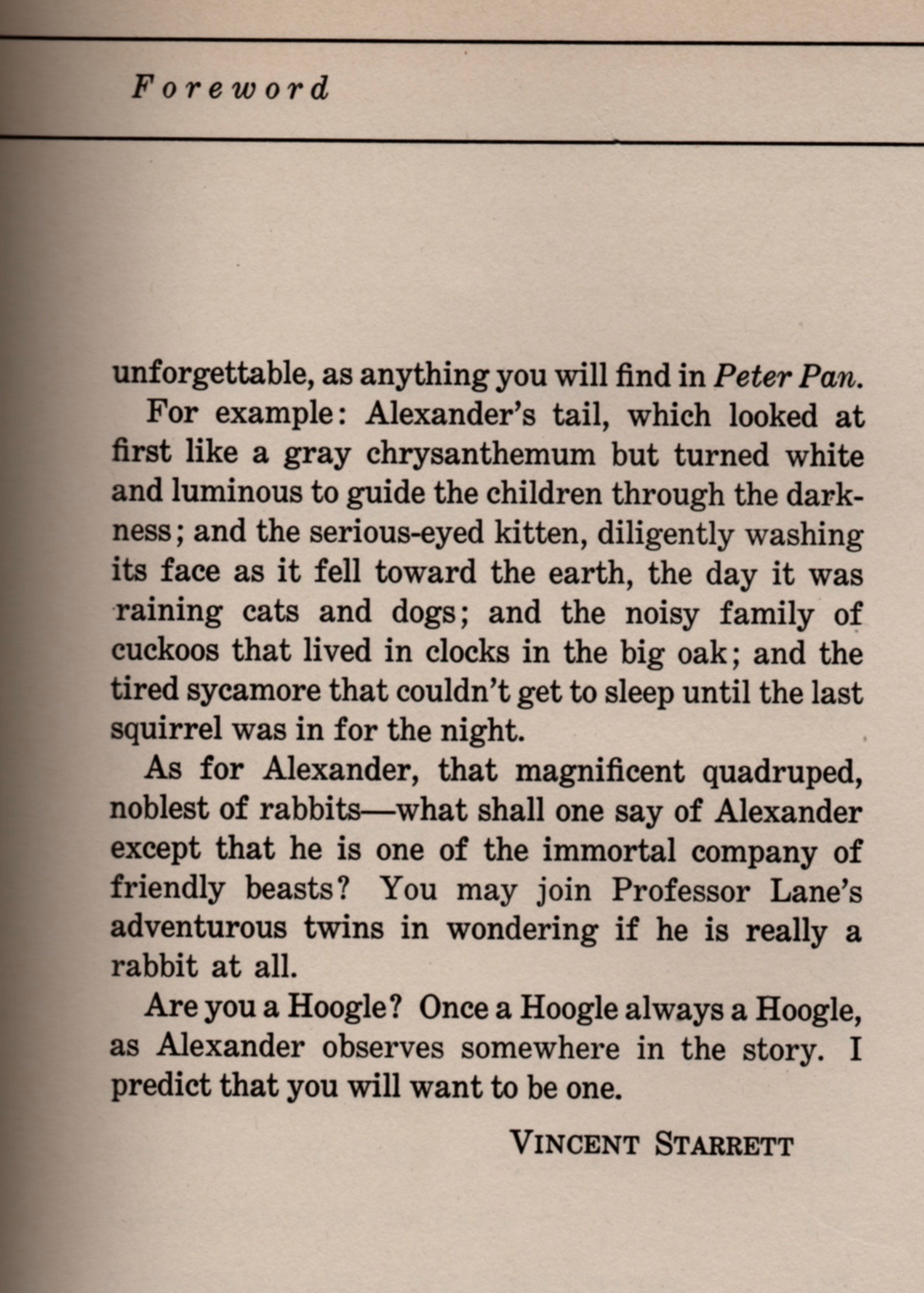
"All my life, all my reading life anyway, I have wanted to write a story for children. A good story, of course, not just any story. A children's classic, if you please; one that would live after me and please thousands of children, young and old, in the years I could not hope to see. Possibly, I used to think, it would be an old-fashioned fairy tale. Something about a prince, or a younger son, who followed a song, let us say, until after many dangers he came to the place where a beautiful princess was shut up in a tower. You know?"
Sadly, he says, "I shall never get around to any of these now."
"I have reluctantly come to realize that I was never capable of writing a children's classic. If I had been, I should have done it long ago. My job, it seems, is to appreciate the good books of the world, and tell others about them."
Starrett's enthusiasm and predictions for The Hoogles and Alexander were grand, but the book quickly faded from view. Its author, Ms. Langley, published nothing substantial after The Hoogles, and largely disappears from view, like the creatures Alexander the rabbit and the two Hoogle children encounter in Dreamwood.
Of course, Starrett did write a children's book, but it was far from a great adventure classic and is little known today. Still, for those who enjoy a game of baseball and reading to their grandchildren, you could do worse than The Great All-Star Animal League Ball Game.
At any rate, the Hoogles will find themselves on the shelf, next to the baseball playing animals, and other works of fantasy.
There are more new books to talk about, but we'll wait for another time.
Happy collecting!
